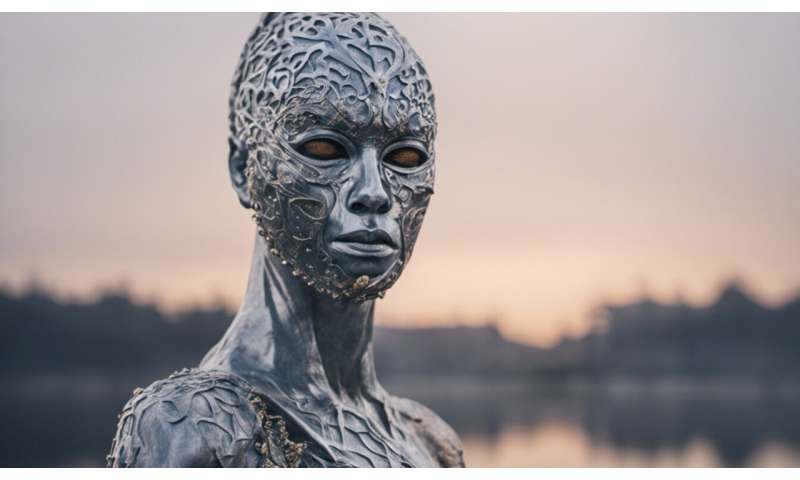Are masks the new face of our society? Science and the changing landscape of human expression
by Science X staff
As masks become the norm in a post-COVID-19 world, experts discuss adapting to new social cues, facial recognition and even security concerns.
To combat the spread of coronavirus, the use of face masks when visiting busy, closed spaces is highly recommended, and compulsory in some European countries. The era of the face mask is upon us, and it's for an undetermined amount of time.
A faceless future
Wearing masks is affecting human expression and interaction during a time when we're uneasily looking to one another for traces of solidarity, optimism and even danger. We like to read faces and judge expressions, and masks now conceal all these cues. "You're left really only with the eyes. And that can make it difficult for people to make these snap judgments that they like to make, even if they're wrong," Leslie Zebrowitz, psychology professor who studies facial perception at Brandeis University in the United States, told 'The Washington Post'. "We feel more comfortable when we feel that we're able to assess what someone is like."
Humans also rely on emotional cues for survival. "When you see a face you do two things at once. You try to work out the identity: Do I know them? How do I know them? And you try to read their emotions," Eilidh Noyes, lecturer in cognitive psychology at the University of Huddersfield in northern England, told 'CNN'. "Emotion recognition is important from an evolutionary perspective as it helps us gauge threat and can also facilitate positive social interactions. That's true of both people we know well and those we have never met."
Hiding behind the mask
"The main problem that people wearing masks throws up is the sheer volume of people suddenly covering their faces," said Francis Dodsworth, senior lecturer in criminology at Kingston University London. "It could create opportunities for people who want to cover their face for nefarious reasons. They could potentially now do so without raising suspicion."
Concealing faces will also have widespread implications for crime and security. "A lot of witnessing is already problematic," Dr. Dodsworth added. "Even when a group of people witness the same crime, one person will see someone with a mustache and a hat, while another will see someone with a beard and sunglasses."
Is facial recognition technology that can accurately identify people far off? Dr. Noyes commented: "At the moment we do not know exactly how facial masks will affect accuracy of human or algorithm face identification." She continued: "I think it's important that if we see claims around a specific algorithm, we don't then apply it to all algorithms because each has its own strengths and weakness. We still need to do a lot more research."
"For survival reasons, you need to know what someone's intentions are when you meet them. Not being able to do that easily will naturally make people more cautious and defensive, which in some cases could, unfortunately, lead to violent confrontations," said Ian H. Robertson, professor of psychology at Trinity College Dublin.
Kate Gray, who specialises in emotion processing at the University of Reading in the United Kingdom, believes adapting to a faceless society will come smoothly: "I think we'll quite quickly get used to picking up social and emotional cues from voice cues or body language."
Provided by CORDIS